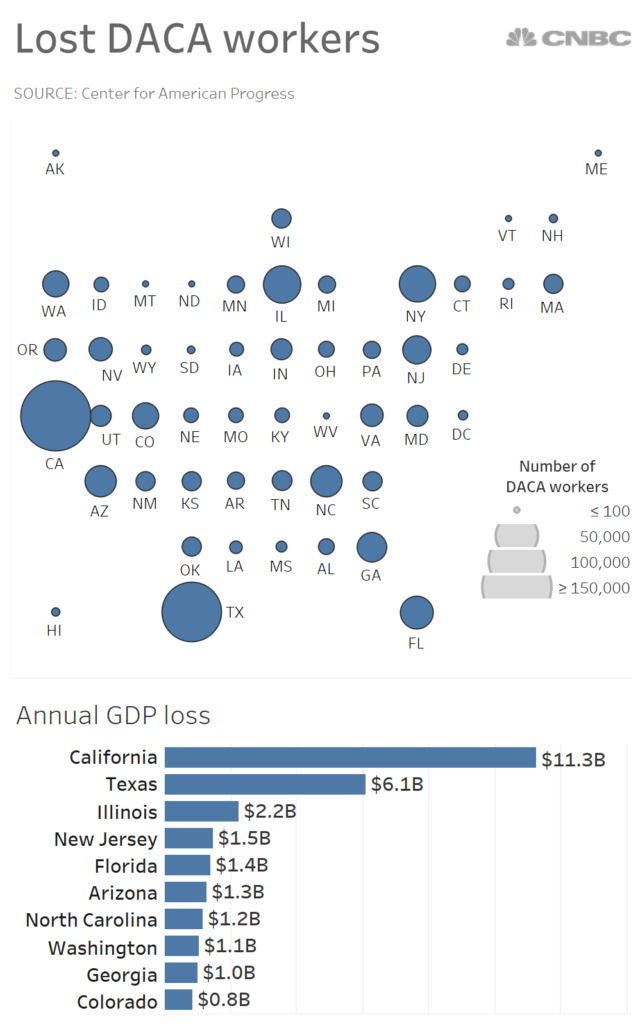On Sept. 5th, the Trump administration announced the repeal of DACA. As a part of the announcement Attorney General Jeff Sessions claimed that DACA has had a negative impact on the American economy, that is not correct. Rather, repealing DACA would hurt the economy.
Repealing this Executive order will not only lead to almost 800,000 undocumented immigrants who came to the united states as kids not being able to work legally and being at risk for deportation, but it will also have a negative impact on the size and growth of United States economy.
First, the actual act of repealing the excretive order will be expensive. The Cato Institute estimates that it will cost the federal government at least $60 billion over the next ten years to execute the repeal of DACA.
By rescinding DACA, the GDP would both shrink in size and growth. A Center for American Progress study estimates that the repeal of DACA would cause US GDP would shrink by $433 Billion over 10 years. The Cato Institute estimates that in that same time frame US economic growth would be reduced by $280 Billion. Both these studies show a dramatic negative impact on the American Economy.
The GDP would not be the only thing to suffer. A CAP study approximates that the contributions to entitlement would drop by $24.6 Billion.
DACA recipients are a key working age population, the average age of a DACA recipient is 22. As the overall American population ages and there are more people dependent on Medicare and social security we will need more people to pay into these programs. By eliminating DACA we are also eliminating a group that

helps keeps entitlements funded.
In general, the United States needs immigration in order to keep our
population pyramid in check. DACA has helped increased that vital working age population to help hold up our increasing top-heavy pyramid.
DACA will not only have a negative impact on national economy, but some states with large populations of DACA recipients will face even greater economic consequence.
California, the state with largest number of DACA recipients, would face an estimated $11.3 Billion annual GDP loss. Texas would also face approximately a $6.1 Billion GDP loss per year.

Leave a Reply
You must be logged in to post a comment.